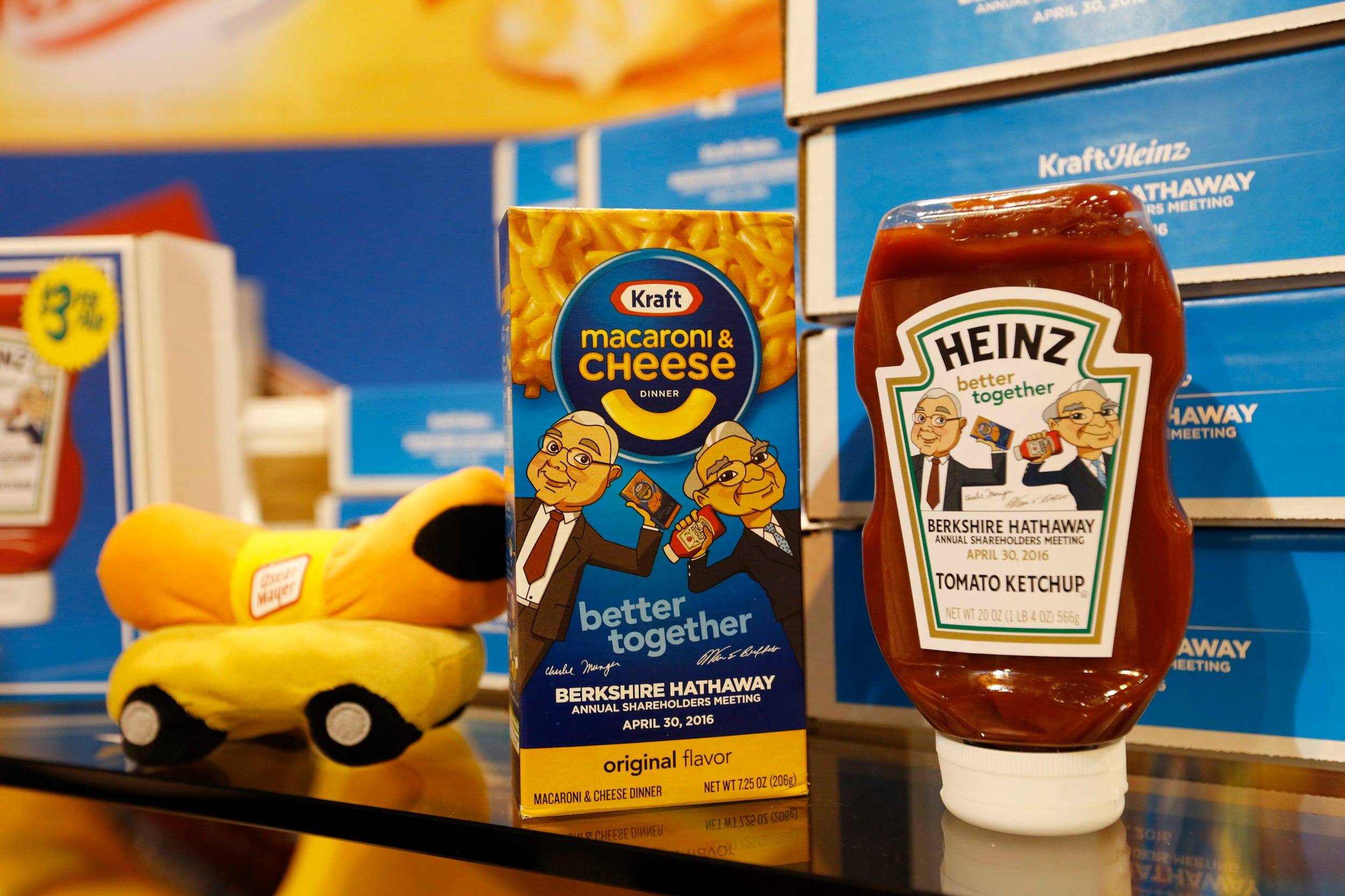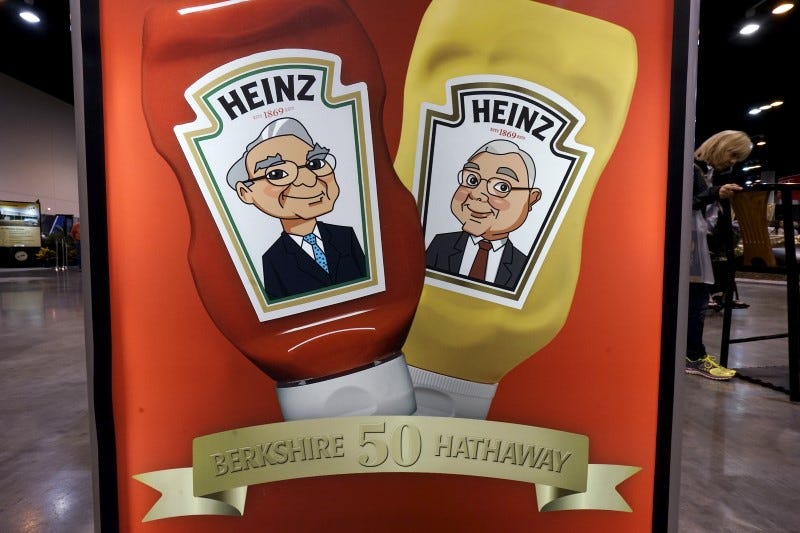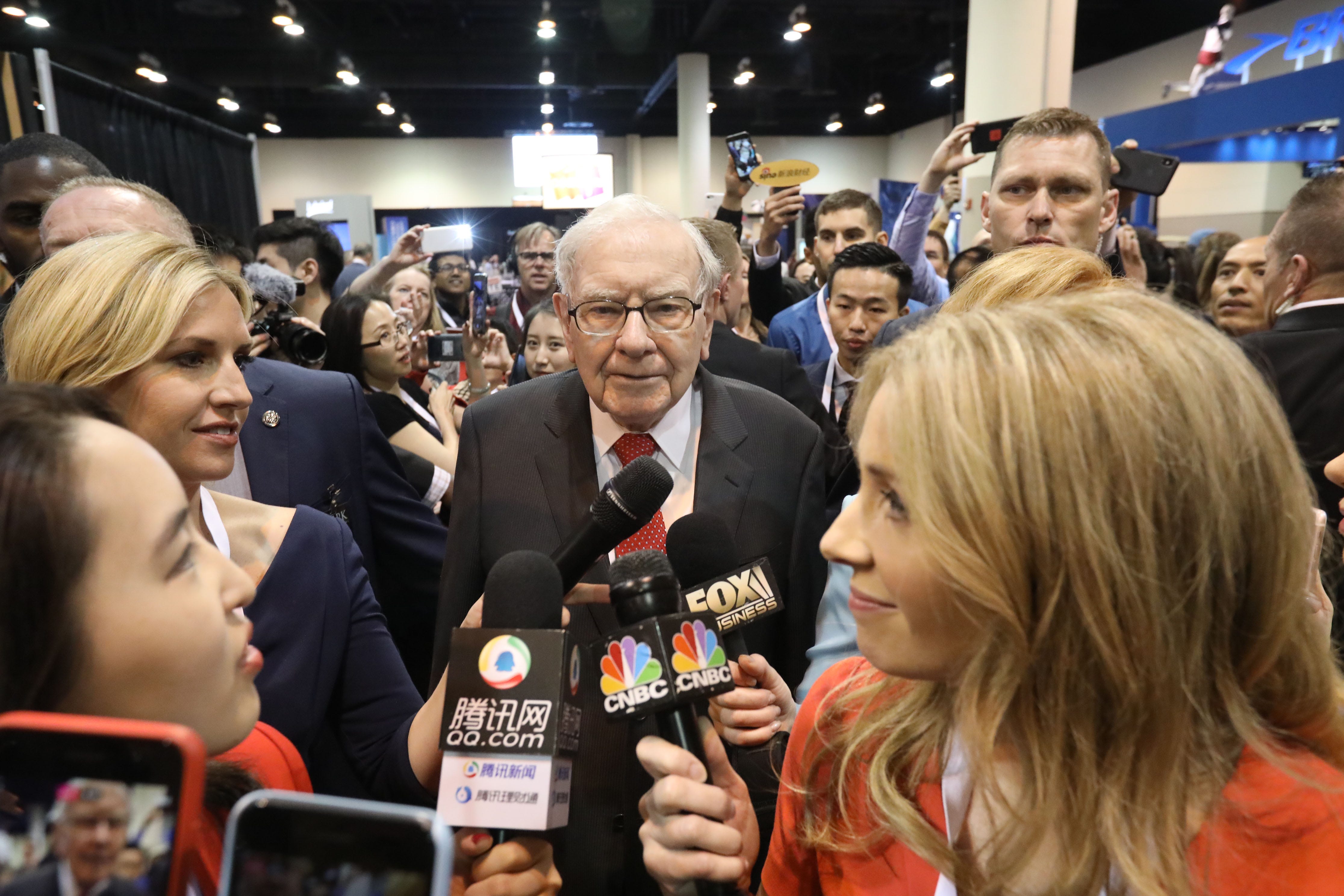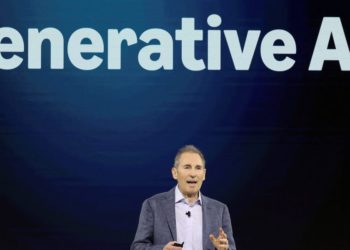
Rya Henriksen/Reuters
Warren Buffett’s dealmaking made him a legend, but the breakup of Kraft Heinz marks one of his few missteps, the investor’s close followers say.
Buffett’s Berkshire Hathaway conglomerate partnered with Brazilian private equity firm 3G Capital to acquire Heinz for around $23 billion in 2013. Two years later, they teamed up again to merge Heinz with Kraft in a $40 billion deal.
Buffett, a fast-food aficionado, called it “my kind of transaction,” adding that the combined company could “supply you Heinz ketchup or mustard to go with your Oscar Mayer hot dogs that come from the Kraft side. Add a Coke, and you will be enjoying my favorite meal.”
An ill-fated merger
Buffett, who plans to retire later this year after 55 years in charge, loves to own famous brands with beloved products, as they can raise prices to counter inflation, and loyal customers help them to fend off competition.
Kraft and Heinz fit the bill. But Buffett’s partnership with 3G Capital was a departure from his playbook.
Private equity firms often seek to quickly cut a company’s costs and change its management to raise its value so they can sell it for a profit and use the money to fund their next acquisition.
In contrast, Berkshire is known for offering permanent, hands-off ownership to businesses it buys, and seeks to avoid bloat instead of eliminate it, as Buffett laid out in his 2015 shareholder letter.
After the Kraft Heinz merger, there were layoffs, management overhauls, massive writedowns, and asset sales. Its aggressive cost controls “significantly impaired” its ability to innovate, the Harvard Business Review wrote.
The company also settled a federal accounting probe and had a protracted decline in net revenues amid shifting consumer preferences.
David Kass, a finance professor at the University of Maryland and a longtime Berkshire blogger, told Business Insider that merging Kraft and Heinz was a “rare mistake” for Buffett.
He pointed to Berkshire having to write down the value of its stake by billions of dollars twice: in 2018 and again in the second quarter of this year. Kass added that the investment has yielded a lower return than the benchmark S&P 500 index over the past decade.
On Tuesday, Kraft Heinz said it plans to split into two businesses. One will house Heinz, Philadelphia, and Kraft Mac & Cheese, and concentrate on sauces, spreads, and seasonings. The other will house Oscar Mayer, Kraft Singles, and Lunchables, and focus on North American staples.

Thomson Reuters
Berkshire and Kraft Heinz didn’t respond to requests for comment from Business Insider but Buffett told CNBC that he was “disappointed.” He told the broadcaster that while the merger wasn’t the best move in hindsight, he was skeptical that dividing up the company would solve its problems.
The “Oracle of Omaha” has said before that acquiring Kraft was an error. He told Berkshire’s 2019 shareholder meeting that he “made a mistake” and “paid too much money” for it.
Kraft Heinz stock was down more than 70% from its 2017 peak before the split was announced. It fell another 7% on Tuesday before regaining some ground on Wednesday. The company’s market value has fallen from over $110 billion at its peak to below $33 billion.
Berkshire is Kraft Heinz’s largest shareholder with a 27.5% stake. Buffett told CNBC he didn’t rule out a sale, saying he would do what was best for Berkshire. 3G sold the last of its stake in 2023.
Buffett’s rare mistake
Kass said it was “puzzling” and an “apparent admission of failure” by management to split up Kraft and Heinz and undo the synergies created. He said it wasn’t clear to him how this would generate value for shareholders. The company has said it anticipates $300 million of “dis-synergies” from the split, although it hopes to mitigate some.
John Longo — a finance professor, investment chief, and the author of “Buffett’s Tips” — said acquiring Heinz was a “home run” for Buffett, but merging it with Kraft was a “rare misstep.”

Xinhua/ via Getty Images
Longo said the merger generated fewer savings than expected. He also said that Kraft Heinz had faced challenges from weight-loss drugs like Ozempic that reduce people’s appetites, and several years of high inflation, which has pushed some consumers to switch to cheaper, generic alternatives.
Alex Morris, the head of TSOH Investment Research and author of “Buffett and Munger Unscripted,” said he agreed with the Berkshire boss that combining Heinz and Kraft “wasn’t a great deal” but “splitting them up won’t fix the key issues.”
Morris said the company’s challenges largely reflected mounting industry pressures on Kraft’s legacy business, as consumer tastes have shifted toward fresher, healthier, and more natural alternatives.
Adam Mead, the author of “The Complete Financial History of Berkshire Hathaway,” told Business insider that he didn’t view the Kraft Heinz deal as a “major blunder.”
“They’ve collected dividends along the way and still own great assets,” Mead said. ‘They’re just not worth as much as originally thought.”
Buffett’s errors are rare, but he has admitted to them in the past.
He said his 1993 purchase of Dexter Shoe, a Maine shoemaker that crumbled under pressure from cheap foreign imports, was his “most gruesome” mistake and a “financial disaster.” He bought the “worthless business” using Berkshire stock that would be worth nearly $19 billion today.
The post Kraft Heinz is breaking up. Merging the food giants was a ‘rare’ misfire by Warren Buffett. appeared first on Business Insider.




